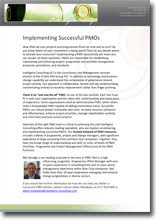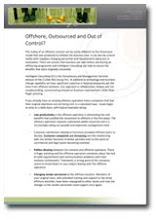Signs of recovery within the business community cannot
come too soon for most people in the UK. We have seen lots of these signs in
the marketplace but I wonder whether these are phantom signs rather than real
ones. Some consultants are deciding to leave assignments as higher rates are
available elsewhere and some are prepared to hold out for assignments closer to
their base location. Some consultants are trying to re-negotiate terms at the
end of projects and they are doing this with more conviction than hope. These
are the signs of a booming economy rather than one that is still wheezing.
However, in reality, are there more assignments out
there? Are there more projects getting the green light? Are there more new
business initiatives being launched? I don’t think that this is the case. I was
meeting with one of the CTOs of a major UK Bank and the story there was about
reductions, cost cutting and removing consultants rather than expansion. I have
also seen a client who is going to release all of their consultants at the end
of the month to see if they could manage without them and then only invite the
most essential back in later. Clients beware! Less scrupulous consultants may
see this as an opportunity for profiteering or may feel that their market worth
has increased with all the talk of growth.
The reality is that this is still a very difficult marketplace to trade in and whilst positive thinking is helpful, I want to see a genuine increase in opportunity before I claim that we have turned any corners, virtual or not.
The reality is that this is still a very difficult marketplace to trade in and whilst positive thinking is helpful, I want to see a genuine increase in opportunity before I claim that we have turned any corners, virtual or not.






